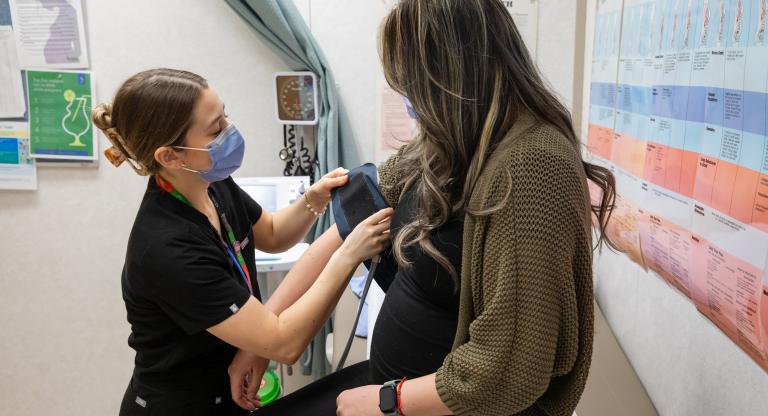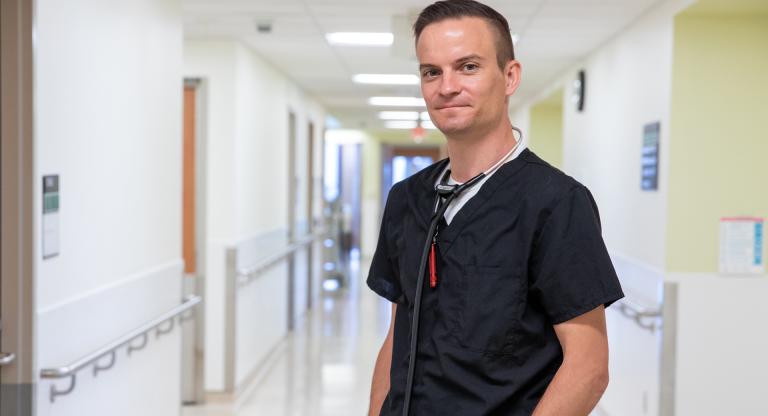(NEWS RELEASE) Gestational diabetes tied to increased future risk for cardiovascular disease
A new study published in Diabetes Care by researchers at Mount Sinai Hospital and the Institute for Clinical Evaluative Sciences (ICES) demonstrates that women who have had diabetes during pregnancy (gestational diabetes), have an elevated lifetime risk for developing cardiovascular disease, whether or not they develop type 2 diabetes.
While it was previously known that women who had gestational diabetes were at increased risk for developing type 2 diabetes, this new finding shows that over a 10-year period, the risk for cardiovascular outcomes such as heart disease and stroke is present in women who had gestational diabetes even if they did not develop type 2 diabetes.
Studying data from 1,515,079 women over 10 years, it was found that 3 out of 1,000 women with gestational diabetes who did not develop type 2 diabetes developed a major cardiovascular outcome. While this risk at the 10 year mark post-pregnancy may seem relatively low, it represents a 29 per cent higher risk than that of women who had neither gestational diabetes nor subsequent type 2 diabetes. This finding is particularly significant as it suggests that, as this patient population of young women of childbearing-age gets older, the presentation of cardiovascular conditions is likely to increase over time. As such, the diagnosis of gestational diabetes can provide an early warning of future risk.
“Recognizing that a woman who has had gestational diabetes is at higher risk of cardiovascular disease gives us the opportunity to take a proactive approach to caring for this patient population. If we know that the risk is there, then it may be possible to develop a health program to decrease that risk through efforts such as increased monitoring and healthy lifestyle choices,” says Dr. Ravi Retnakaran, an endocrinologist with Leadership Sinai Centre for Diabetes at Mount Sinai Hospital and an investigator with the Lunenfeld-Tanenbaum Research Institute. The institute ranks amongst the top diabetes research centres in the world.
Dr. Retnakaran collaborated with Dr. Baiju Shah, of the Institute for Clinical Evaluative Sciences (ICES). “In the context of our 2014 study which showed that the rate of both gestational diabetes and pre-gestational diabetes has doubled over a ten year period, this new study lends an urgency to better understanding gestational diabetes and treatments. With one in every 10 pregnant women over the age of 30 developing diabetes in pregnancy, we can begin to consider what this means for future resources needed to manage the associated risks,” says Dr. Shah.
About the Lunenfeld-Tanenbaum Research Institute
The Lunenfeld-Tanenbaum Research Institute, part of Sinai Health System, is a leading biomedical research centre, ranking amongst the top biomedical research institutes in the world. Established in 1985, the institute is profoundly advancing understanding of human biology in health and disease. Many of the breakthroughs that began as fundamental research have resulted in new and better ways to prevent, diagnose and treat prevalent conditions. The institute is affiliated with the University of Toronto and is focused on women’s and infants’ health, cancer biology, stem cell biology, neurobiology, diabetes, arthritis, health systems research, population health services and solutions, and systems biology. www.lunenfeld.ca.
About The Institute for Clinical Evaluative Sciences (ICES)
ICES is an independent, non-profit organization that uses population-based health information to produce knowledge on a broad range of health care issues. Our unbiased evidence provides measures of health system performance, a clearer understanding of the shifting health care needs of Ontarians, and a stimulus for discussion of practical solutions to optimize scarce resources. ICES knowledge is highly regarded in Canada and abroad, and is widely used by government, hospitals, planners, and practitioners to make decisions about care delivery and to develop policy. For the latest ICES news, follow us on Twitter: @ICESOntario












